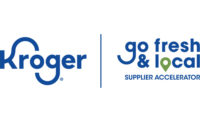USDA Wants Schools to go Local

The new rules will let schools and other providers give preference to unprocessed locally grown and locally raised agricultural products as they purchase food for the National School Lunch, School Breakfast, Special Milk, Child and Adult Care, Fresh Fruit and Vegetable, and Summer Food Service programs.
The rule is part of the Healthy, Hunger-Free Kids Act of 2010 signed into law by President Obama and one of the key provisions to bolster farm to school programs across the country.
“This rule is an important milestone that will help ensure that our children have access to fresh produce and other agricultural products,” said Agriculture Under Secretary Kevin Concannon. “It will also give a much-needed boost to local farmers and agricultural producers.”The rule supports USDA’s ‘Know Your Farmer, Know Your Food’ initiative which emphasizes the need for a fundamental and critical reconnection between producers and consumers.
The effort builds on the 2008 Farm Bill, which provides for increases and flexibility for USDA programs in an effort to revitalize rural economies by supporting local and regional food systems.
‘Know Your Farmer, Know Your Food’ is helping to break down barriers that keep local food systems from thriving, create new opportunities for farmers, ranchers, consumers and rural communities, and expand access to healthy food throughout the country. USDA expects consumer demand for locally grown food in the U.S. to rise from an estimated $4 billion in 2002 to as much as $7 billion by 2012.
The Farm to School component of this effort is designed to help connect schools with regional or local farms in order to serve healthy meals using locally-sourced products in their cafeterias.
USDA currently is sending teams out to select school districts to work on farm to school issues. Some of these programs also incorporate nutrition-based studies, as well as food-learning opportunities such as farm visits, gardening, cooking and composting activities.
From the June 20, 2011, Prepared Foods' Daily News.
Looking for a reprint of this article?
From high-res PDFs to custom plaques, order your copy today!







